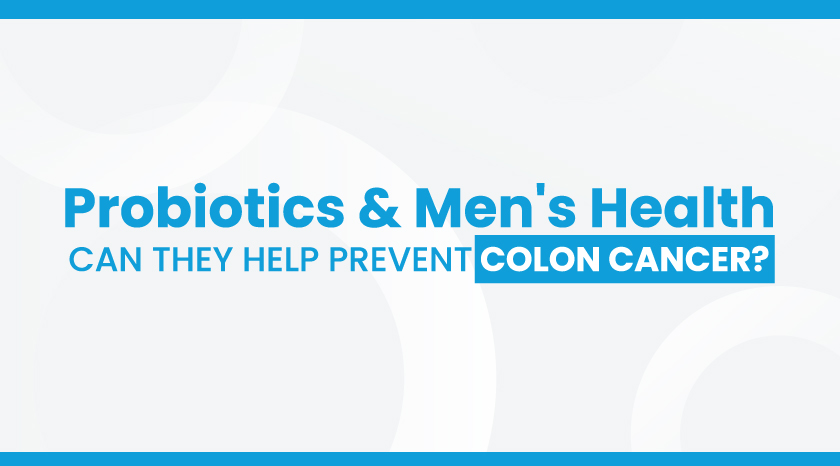In the realm of men’s health, the conversation around preventive measures against diseases like colon cancer is vital. Among various strategies, probiotics have sparked interest for their potential health benefits, including possible roles in cancer prevention. Let’s explore the connection between probiotics and colon cancer prevention, along with general tips on maintaining a healthy gut.
What are Probiotics?
Probiotics are live microorganisms, primarily bacteria, similar to beneficial microorganisms found in the human gut. They are often referred to as “good” or “friendly” bacteria. Probiotics are thought to help restore the natural balance of the gut microbiota, which can be disrupted by factors like poor diet, stress, and antibiotic use. Common sources of probiotics include yogurt, sauerkraut, kimchi, kefir, and supplements.
The Gut Microbiome and Colon Cancer
The gut microbiome plays a crucial role in overall health and disease, including the development of colon cancer. Disruptions in the balance of gut bacteria have been linked to increased inflammation, reduced immune function, and altered digestion—all factors that may contribute to cancer risk. Research suggests that a healthy, balanced gut microbiome can help reduce inflammation and produce substances that protect against cancer cells.
Probiotics and Cancer Prevention
1. Reducing Inflammation: Chronic inflammation is a known risk factor for many types of cancer, including colon cancer. Probiotics may help manage and reduce inflammation in the body, potentially lowering cancer risk.
2. Enhancing Immune Function: Probiotics can enhance the body’s immune response, helping to identify and destroy harmful cells that could lead to cancer.
3. Detoxification: Certain probiotic strains can bind to and help eliminate carcinogens from the body, reducing the likelihood of them causing harm.
4. Promoting Healthy Digestion: By improving digestion, probiotics can prevent the buildup of harmful substances in the colon, which might contribute to cancer development.
Clinical Evidence and Recommendations
While the theoretical benefits of probiotics are promising, clinical evidence is still evolving. Some studies have shown encouraging results regarding probiotics’ role in reducing the risk of colon cancer, but these findings are not yet conclusive. Health professionals typically recommend probiotics as part of a broader lifestyle approach for general health benefits, rather than solely for cancer prevention.
Implementing Probiotics into Your Diet
For those interested in adding probiotics to their diet, here are a few tips:
- Choose fermented foods: Incorporate a variety of fermented foods into your diet, such as yogurt, kefir, sauerkraut, and kimchi, which naturally contain probiotics.
- Consider supplements: If dietary options are limited, probiotic supplements can be an effective way to ensure you’re getting these beneficial bacteria. However, it’s important to choose high-quality products from reputable sources.
- Diet diversity: Supporting your probiotics with a fiber-rich diet ensures they have the nutrients they need to thrive, which in turn benefits your gut health.
Adding probiotics to your diet can contribute to a healthier gut microbiome and potentially lower the risk of colon cancer among other health benefits. However, it’s important to remember that probiotics are just one part of a holistic approach to health. A balanced diet, regular exercise, and routine health check-ups are also crucial in maintaining good health and preventing diseases like colon cancer.
Men are encouraged to discuss any new or supplementary treatments with their healthcare provider to ensure it complements their overall health strategy. As research continues, the understanding of probiotics in cancer prevention will likely grow, potentially leading to more tailored recommendations in the future.




